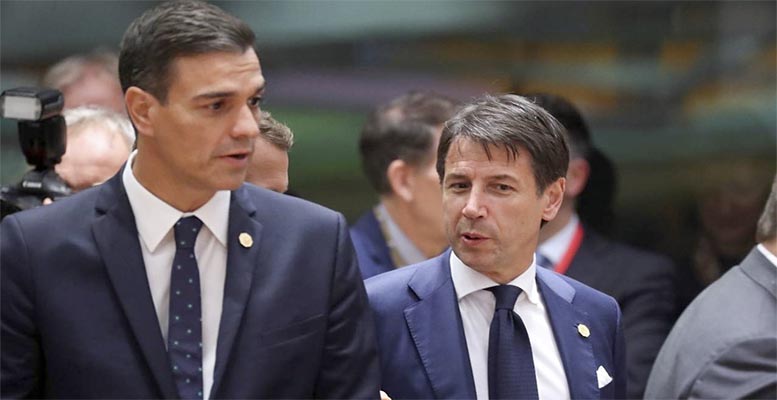The European Commission has been asked to set up a 2 billion euros reconstruction fund, which will include subsidies. The European Commission will present its proposal on 27 May. MEPs adopted a resolution on Friday, calling on the European Commission to set up a 2 billion euros reconstruction fund to assist the countries and sectors most affected by the Covid-19 pandemic. The resolution was adopted by a majority of 505 votes in favour, 119 against and 69 abstentions. The fund would have to operate, at least partly, on the basis of grants and subsidies rather than loans to avoid excessive leverage by any of the member states (Italy, Spain). The new instrument should be financed by issuing long-term bonds guaranteed by the EU budget. Instead of countries putting more money from their national coffers into the common accounts, the EMU could raise the financing via new European taxes. These could include taxes on digital services, on financial transactions, a common consolidated corporate tax base or taxes on pollutant emissions or plastics.
The above-mentioned post-pandemic recovery fund would be financed by the Community budget, with 80% going to support Member States and up to 15% to facilitate private investment. The EU executive’s plans include an increase in the budget’s spending ceiling to 2%, from the current 1.2%, using the margin to back the bond issue.
The Commission points out that this type of bond is not the same as the “coronabonds” demanded by some countries at the beginning of the pandemic. And according to EU sources, they are already backed by almost all member countries. The aim of the executive is to structure the fund on the basis of three pillars: aid to the Member States, support for private investment and reinforcement of existing instruments in the EU.
The management of the Covid-19 crisis is a challenge for the European project. For the Bankinter analysis team:
“On the one hand, when the pandemic is over there will be members (Italy, Spain) with 20 or 30 points more debt to GDP. And it will take them at least one or two decades to assimilate this. Hence the need for solidarity and joint efforts.
“On the other hand, countries like Germany, the Netherlands, or Austria argue that this aid could provide perverse incentives for fiscal laxity amongst those who benefit from cheaper financing. These countries only implemented tax reforms and adjustments at the time of the bail-out, taking their foot off the accelerator as soon as the pressure was off”.
Disagreements between member states on the provision, financing and operation of this anti-crisis instrument are therefore obvious and difficult to reconcile
For the time being, confrontation has already been fuelled with regard to one of the new key pieces in the action plan, according to Intermoney experts:
“The call from Brussels for new resources in the form of national taxes that should be handed over to the EU coffers has already begun to cause discomfort in some countries.
At the same time, the economic support measures already approved within the EU are beginning to show some cracks. Specifically with regard to loans worth up to 2 percent of their GDP that member countries could apply for from the ESM. Intermoney explains:
“The risk of the conditionality of this tool is very real and it would undoubtedly end up taking shape by 2022. This circumstance has led Italy to reject making a call on ESM resources. And now, information gathered by Reuters, indicates that Spain would seek to avoid this option. For the time being, this is possible thanks to the important support from the ECB”.
Finally, EU members also reached a political agreement on Friday to create the SURE. This is the 100 billion euros European fund that aims to provide loans to help pay for measures to preserve jobs (such as the ERTEs in Spain). The measure will be approved by the European Council on 19 May and will be operational until end-2022, with a possible 6 month extension. It is one of three “safety nets” worth 540 billion euros for jobs and workers, companies and member states, agreed by the Eurogroup on 9 April 2020.





